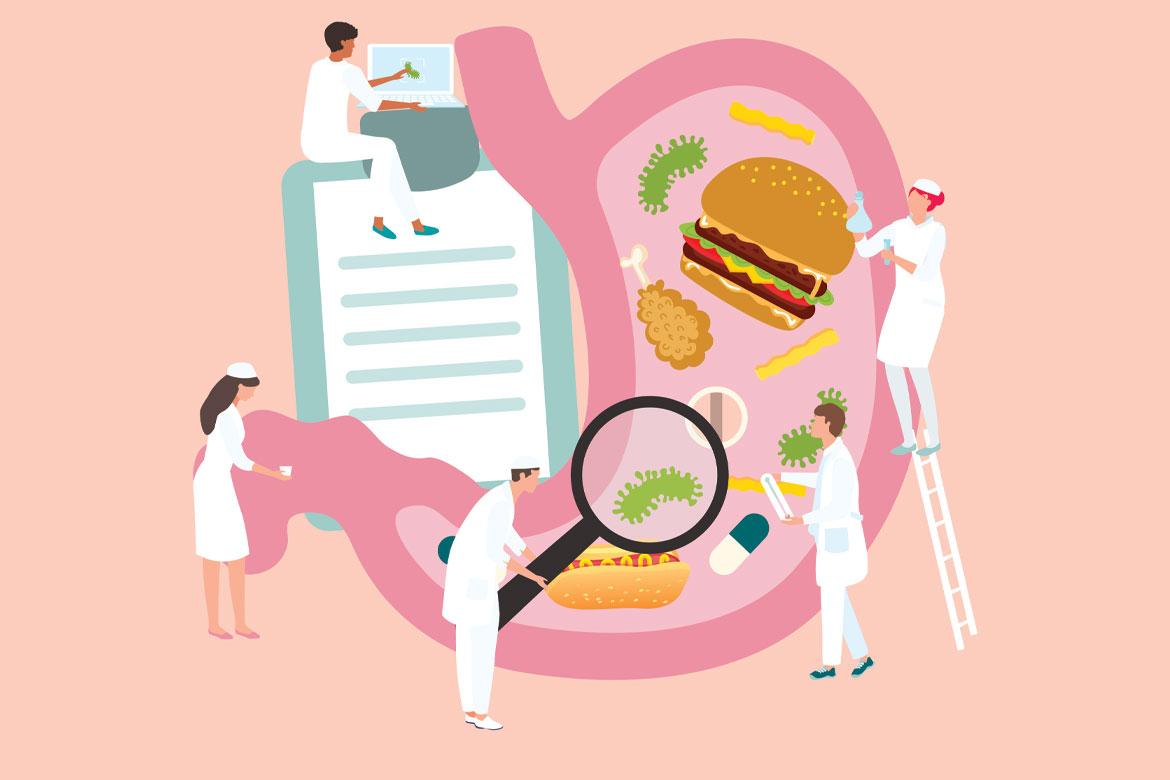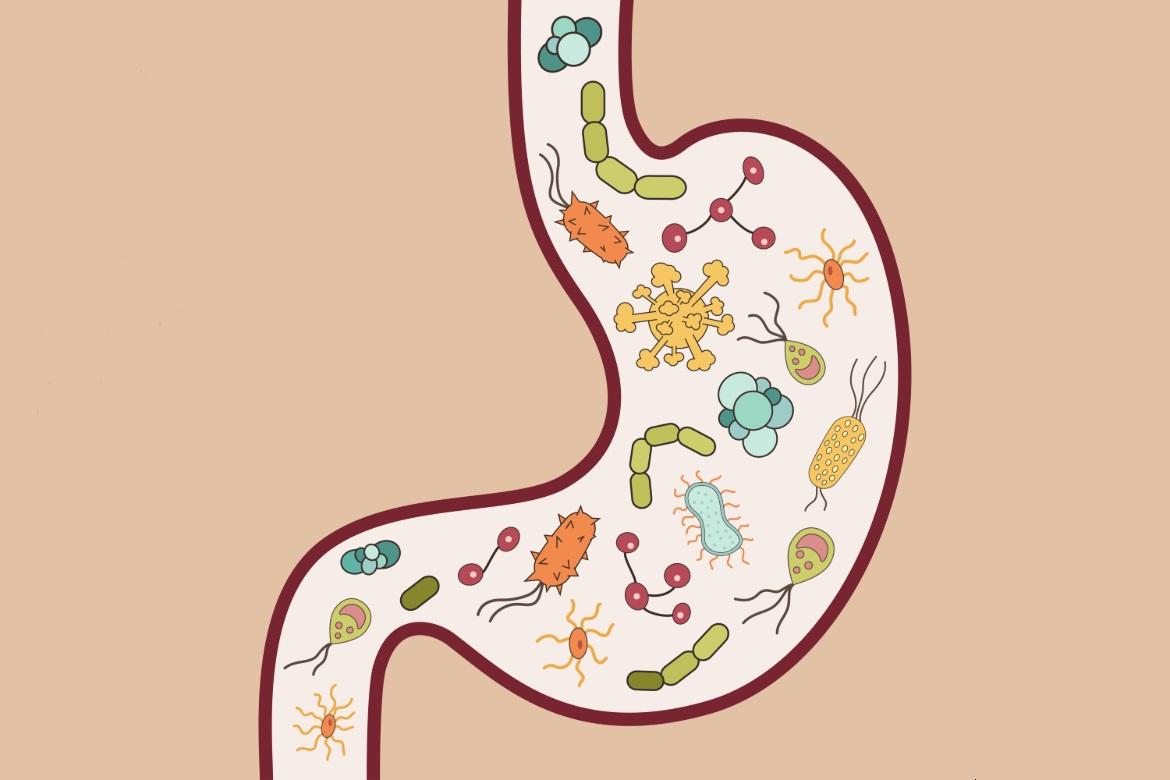-
-
Featured Care Areas

Irritable Bowel Syndrome (IBS)
What is irritable bowel syndrome?
Irritable bowel syndrome (IBS) is a chronic disorder that affects the normal functioning of the colon, or large intestine. It causes discomfort and pain, changes in bowel habits (constipation or diarrhoea), gas and bloating.
Irritable bowel syndrome is not life-threatening as it does not lead to permanent damage to the colon or serious complications such as cancer.
What are the symptoms of irritable bowel syndrome?
The symptoms of IBS can vary greatly between affected individuals. Your symptoms can range from mild to disabling.
They include the following symptoms:
Changes to stools and bowel habits
You may experience:
- Constipation with small, pellet-like stools that are painful to pass and infrequent
- Diarrhoea where stools are loose and watery, accompanied by an urgency to relieve yourself
- Alternating of both above type of symptoms
- Mucus mixed with stools
- A feeling that your bowel does not empty completely after going to the toilet
Excess gas and abdominal bloating
You may experience:
- Feeling bloated or gassy
- Having trouble with passing gas
- Excess gas and bloating triggered by certain foods
- Excess gas and bloating caused by certain habits such as chewing gum, eating and drinking too fast or drinking through a straw
Abdominal pain or cramps
You may experience:
- Pain that occurs on and off, with varying length and severity
- Pain located at the lower abdomen, particularly on the left side
- A constant dull pain interrupted by short episodes of sharp pain
- Pain that improves when stools or gas are passed
The above symptoms are similar to those of colon cancer. Consult your doctor for a thorough evaluation if you experience these symptoms persistently.
You may also experience less common symptoms of IBS such as:
- General tiredness
- Backache
- Sweating
- Nausea
- Vomiting
- Pain when going to the toilet
What causes irritable bowel syndrome?
There is still no conclusive evidence on the exact cause for IBS. While there are several well-known theories, the actual science behind IBS remains uncertain.
Observations of people suffering from the disease provide clues to the probable causes of the condition.
Intestinal muscle contractions
Food is passed through the digestive tract by contracting muscles on the intestinal wall.
When stronger, longer-lasting contractions move food through the bowel quickly and forcefully, this leads to gas, bloating, and diarrhoea.
When weak contractions move food very slowly through the bowel, this leads to constipation.
Infections
Certain bacteria or a virus like gastroenteritis can cause severe diarrhoea and vomiting, which can trigger symptoms of IBS.
Bacterial overgrowth in the gut
Our gut harbours a host of microorganisms called the gut microbiota that play a key role in our health.
The composition of our gut microbiota depends on a variety of factors including diet, drugs, and disease.
People with IBS may have an increase in the number or change in the type of bacteria in the small intestine leading to symptoms.
Inflammation in the intestines
Some people with IBS appear to have mild inflammation in the intestines. Such inflammation may be caused by multiple factors. More research is needed to understand its role in causing IBS.
Sensitive nerves in the intestines
Sensitive nerves in the intestines can cause excessive contraction of the bowel muscles when eating, leading to cramps in the abdomen.
What are the risk factors for irritable bowel syndrome?
You may have an increased chance of IBS if you are:
- Young
- Have a family history of IBS
- Lead a stressful life
- Suffer from infection or inflammation of the gut
What are the complications and related diseases of irritable bowel syndrome?
There are several other conditions with symptoms that are similar to that of IBS, such as:
Coeliac disease
Coeliac disease is a condition caused by an adverse reaction to gluten, which is found in wheat, barley, and rye. Symptoms include diarrhoea, abdominal pain, and bloating.
Inflammatory bowel disease (IBD)
IBD is a group of diseases that cause chronic inflammation and irritation in the intestines.
Overlapping IBD symptoms include abdominal pain, urgent need to have a bowel movement, loss of appetite, and weight loss.
People with IBD often have bleeding in their intestines and pass bloody stools.
Colon cancer
Colon cancer is a common type of gastrointestinal cancer. Symptoms include abdominal pain, change in bowel habits, fatigue, and weight loss.
Stomach and intestinal infections
These infections are caused by common virus, bacteria, and parasites in adults and children.
Complications and related diseases of IBS
People with IBS may also be prone to:
- Conditions involving chronic pain, such as fibromyalgia, chronic fatigue syndrome, and chronic pelvic pain
- Digestive diseases like dyspepsia and gastroesophageal reflux disease (GERD)
- Anxiety and depression
- Malnutrition
- Worsening of piles
Although IBS is not a life-threatening condition, it might be incapacitating for some people. You may worry that the pain will be so bad that you cannot leave the house or experience anxiety about having frequent and sudden episodes of diarrhoea.
Moderate to severe IBS often impacts quality of life, from frequently needing to use the restroom or avoiding social engagements to missing work days. The disruptions of IBS are also linked to emotional or psychological disorders – according to the Anxiety and Depression Association of America, 50 – 90% of those who seek treatment for IBS also struggle with anxiety or depression.
Another study showed that IBS can also affect the well-being and health of the spouses and partners of IBS patients. The more severe the IBS, the worse the strain on the relationship.
If you experience these problems, do not be afraid to seek professional help. With proper management and guidance, your IBS can be controlled and you can resume a healthy lifestyle.
Getting stressed over IBS may aggravate your symptoms. See a gastroenterologist if your symptoms are severe or frequent enough to disrupt your lifestyle.
This page has been reviewed by our medical content reviewers.
Need help?
For enquiries, please call
+65 6575 7575
For appointment bookings, please WhatsApp
+65 8111 9777








